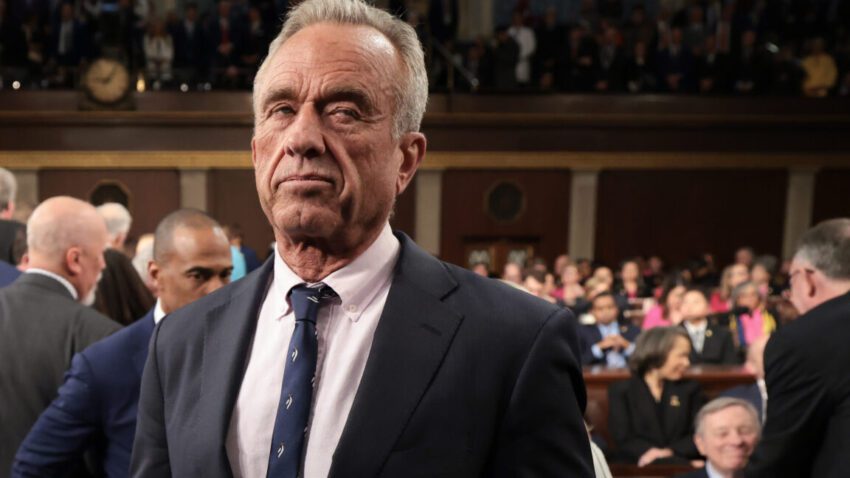
rfk jr s loathesome edits cdc website Robert F. Kennedy Jr., a prominent anti-vaccine activist, has made significant changes to a federal webpage that previously debunked the myth linking vaccines to autism, raising concerns about public health and misinformation.
rfk jr s loathesome edits cdc website
Background on Vaccine-Autism Controversy
The debate over vaccines and autism has been a contentious issue for decades, fueled by misinformation and discredited studies. The most notorious of these was a 1998 study by Andrew Wakefield, which falsely claimed a connection between the MMR (measles, mumps, and rubella) vaccine and autism. This study was later retracted, and Wakefield lost his medical license due to ethical violations. Despite the overwhelming scientific consensus that vaccines are safe and effective, the myth persists, largely propagated by anti-vaccine advocates.
Public health organizations, including the Centers for Disease Control and Prevention (CDC), have consistently worked to dispel these myths through research and public education. The CDC’s webpage on “Autism and Vaccines” previously served as a reliable resource, clearly stating that numerous studies have shown no link between vaccines and autism spectrum disorder (ASD). This information was crucial in combating the misinformation that has contributed to declining vaccination rates in some communities.
Changes to the CDC Website
On Wednesday, the CDC made a controversial decision to replace the existing content on its “Autism and Vaccines” webpage with a narrative that aligns with anti-vaccine rhetoric. This shift occurred under the leadership of Robert F. Kennedy Jr., who has been vocal in his opposition to vaccines and has gained a following among those skeptical of vaccination programs.
The new content on the CDC website promotes the false notion that vaccines are linked to autism, a claim that has been thoroughly debunked by extensive research. This change is alarming for several reasons, particularly as it comes at a time when vaccination rates are already declining in the United States.
Implications for Public Health
The implications of this change are profound. Public health experts warn that promoting misinformation about vaccines can lead to increased vaccine hesitancy, which in turn can result in lower vaccination rates. This decline poses a significant risk, especially for children and vulnerable populations who rely on herd immunity to protect them from vaccine-preventable diseases.
Vaccines have been instrumental in controlling and even eradicating diseases that once posed serious threats to public health. For instance, diseases like measles, mumps, and rubella have seen a resurgence in recent years, largely due to decreased vaccination rates. The CDC’s previous messaging was critical in maintaining public trust in vaccines and ensuring high vaccination coverage.
Public Reaction and Stakeholder Responses
The reaction to the CDC’s decision has been swift and largely negative. Public health officials, medical professionals, and advocates for vaccination have expressed their concerns about the potential consequences of spreading misinformation. Dr. Anthony Fauci, a prominent immunologist and former director of the National Institute of Allergy and Infectious Diseases, stated, “This is a dangerous precedent that could undermine decades of progress in public health.” He emphasized the importance of relying on scientific evidence rather than unsubstantiated claims.
Organizations such as the American Academy of Pediatrics (AAP) and the World Health Organization (WHO) have also condemned the changes to the CDC website. They argue that public health agencies must provide accurate information to counteract the harmful effects of misinformation. The AAP released a statement saying, “We must continue to advocate for science-based information that protects children and communities from preventable diseases.” The WHO echoed this sentiment, highlighting the need for transparency and trust in public health messaging.
The Role of Misinformation in Public Health
The rise of misinformation, particularly in the context of vaccines, has been exacerbated by social media and the internet. Platforms like Facebook and Twitter have become breeding grounds for anti-vaccine rhetoric, allowing false claims to spread rapidly. This environment has made it increasingly difficult for public health officials to combat misinformation effectively.
Research has shown that misinformation can have lasting effects on public perception and behavior. A study published in the journal “Vaccine” found that exposure to anti-vaccine messages significantly decreased individuals’ intent to vaccinate their children. This highlights the importance of clear and accurate communication from trusted sources, such as the CDC.
Historical Context of Vaccine Hesitancy
Vaccine hesitancy is not a new phenomenon; it has historical roots that date back to the introduction of vaccines. The smallpox vaccine, for example, faced significant opposition in the 19th century, with many people fearing the safety and efficacy of the new treatment. Over time, as vaccines proved their effectiveness in controlling diseases, public confidence grew.
However, recent years have seen a resurgence of vaccine hesitancy, driven in part by the spread of misinformation. The anti-vaccine movement has gained traction, fueled by high-profile figures like Robert F. Kennedy Jr. who have leveraged their platforms to promote skepticism around vaccines. This has led to a decline in vaccination rates, which poses a risk to public health.
Future Considerations
As the CDC navigates this controversial change, it faces the challenge of restoring public trust in its messaging. Experts suggest that the agency must take proactive steps to counteract the misinformation now present on its website. This could include re-establishing the previous content that accurately reflects the scientific consensus on vaccines and autism.
Moreover, public health officials must engage with communities to address concerns and misconceptions about vaccines. Building trust through transparent communication and outreach efforts will be essential in reversing the trend of vaccine hesitancy.
Importance of Continued Education
Education plays a crucial role in combating misinformation. Public health campaigns that focus on the benefits of vaccination and the risks associated with vaccine-preventable diseases can help inform the public. Additionally, healthcare providers must be equipped with the tools and resources to address patients’ concerns about vaccines effectively.
Incorporating evidence-based information into school curricula and community programs can also help foster a culture of trust in vaccines. By emphasizing the importance of vaccination in preventing disease, public health officials can work towards increasing vaccination rates and protecting vulnerable populations.
Conclusion
The recent changes to the CDC’s “Autism and Vaccines” webpage under Robert F. Kennedy Jr.’s leadership raise significant concerns about the future of public health messaging in the United States. As misinformation continues to spread, it is imperative for public health agencies to uphold their commitment to providing accurate, science-based information. The consequences of failing to do so could be dire, leading to increased disease outbreaks and preventable suffering.
Ultimately, the fight against vaccine misinformation requires a concerted effort from public health officials, healthcare providers, and the community at large. By prioritizing education and transparency, it is possible to restore public trust in vaccines and ensure the health and safety of future generations.
Source: Original report
Was this helpful?
Last Modified: November 21, 2025 at 12:39 am
1 views















